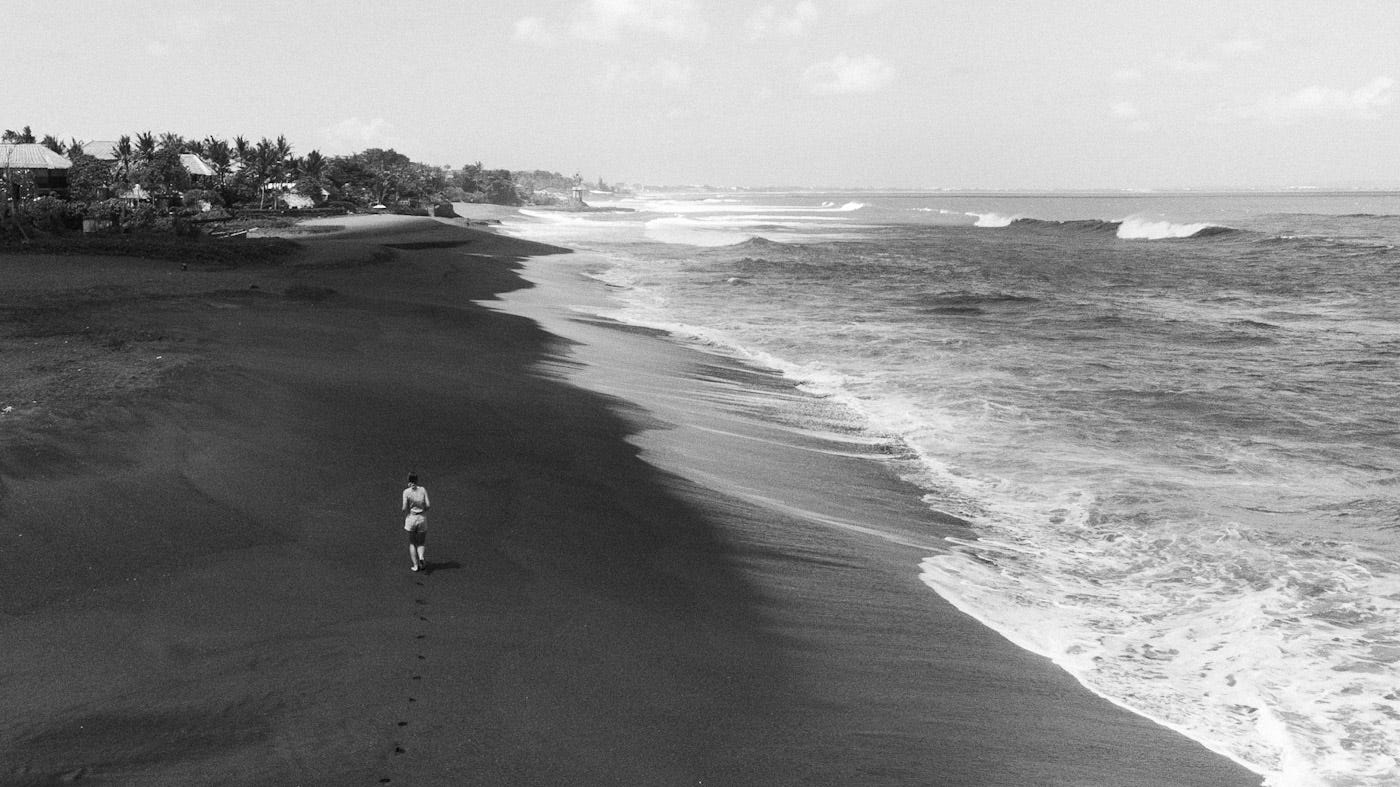Let’s stop romanticising digital nomadism 🧳 and start listening to your own needs 🩺

Let’s imagine a scenario.
Tom read on LinkedIn about digital nomadism, and it struck a cord. It seemed to him as an embodiment of total freedom. Something that he lacks in his current life setup.
The more he saw the beautiful photographs and praise from around the world of people working in exotic locations, near the seaside or in the jungle, the more he envied them. Thus, Tom started sending out CVs to fully remote companies.
After six (or was it eight?) months of intensive search and interviews, it finally happened. When Tom got the offer, he could not believe it, as if he touched something divine for a second.
Tom planned his first-ever journey to South-East Asia as people said this was the way to go. He packed his bags and flew to Bali.
⏳Fast forward six months later.
Tom noticed some shades compared to the posts people shared:
It’s not that much cheaper here compared to Europe, although he can afford slightly more.
Finding a place with a good desk setup is hard, and working under a palm tree is terrible for your back.
It’s hard to keep up with his diet, and he’s tired of eating in restaurants so often.
The gyms are awfully expensive.
It’s getting more and more crowded, yet, at the same time, he feels lonely.
He cannot buy the same food as at home, or it sells for much higher prices.
What happened?
Nothing special - Tom discovered that the country he’s in is much different to his and that he misses some of the amenities he had at home. Tom also realised that leading a similar life at his comfortable home would need some (major) adjustments.
Some people would say - yeah, but you can take care of that easily with X, Y, Z, or why did Tom not check before going etc. Maybe, yet that’s not the point.
There’s a more important question: What does Tom really need for himself, and why did he decide to take this journey in the first place?
The term digital nomadism got a lot of traction due to COVID-19 and started to be idealised (was it ever not?). There are some edges worth exploring that may need improvement.
Four things people rarely talk about:
#1 Confusing rest with work - when working with a beautiful view, you are either “connected” with the picture or with work. Doing these two at once can dangerously blur the two worlds. You neither work nor rest.
#2 Gentrification is happening in Bali due to rapid growth and rebirth of tourism. It becomes harder to experience the true soul of the place, and prices are soaring (e.g. 50-100% and more regarding rentals).
#3 Taking care of your health - keeping your health habits will require a rethink and more stamina to sustain (as well as money, depending on the location and your habits).
#4 Escapism - especially spiritual bypassing. Some people use digital nomadism to escape and numb themselves through the constant stream of stimulation.
I think it’s high time we talk about different lifestyles less emotionally and more practically. Discuss what the camera does not see and does not get enough airtime.
What else do people not often mention about digital nomadism?
PS. I’m not Tom, although the observations shared above are a real thing. Personally, I enjoy living as a digital nomad yet not all directions are something I would like to explore.
—
🎈Share this post if you think it can help others make more conscious choice about their style of working and living.

